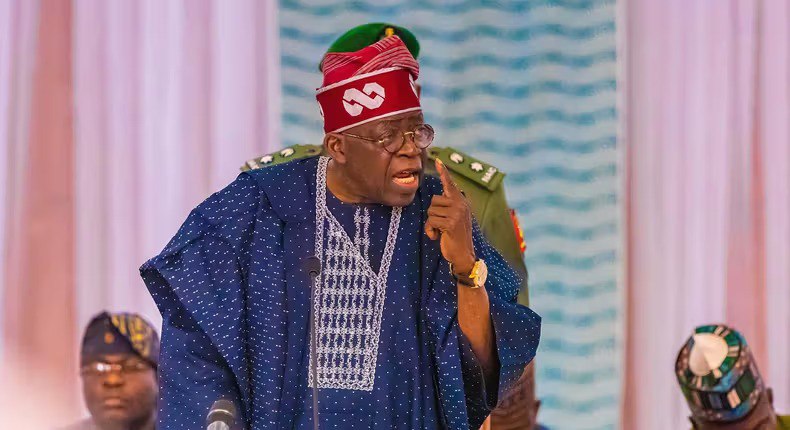President Bola Tinubu on Thursday defended his administration’s reforms, saying there is no going back.
Tinubu on his inauguration declared an end to the fuel subsidy regime and later floated the naira alongside a slew of reforms. The moves have triggered a hike in the cost of living in Nigeria as the country’s currency lost its value.
Despite the criticisms and protests that have greeted reforms by the Tinubu’s government, the president is not backing down.
“I am happy that the Council is interested in various segments of Nigeria’s economy. We are right in the middle of a challenging stage of our reforms. We have headwinds, no doubt, but we are not going back,” Tinubu said at the State House in Abuja while receiving a delegation from the Corporate Council on Africa (CCA) led by Florizelle Liser, CCA’s President and Chief Executive Officer.
“We are challenged, and we believe we will overcome the challenges. I have a can-do attitude that must be translated into a must-do attitude. We have a good team, and we must remain focused to get the goal accomplished,”.
After coming to office last year Tinubu ended a fuel subsidy and currency controls, leading to a tripling of petrol prices and a spike in living costs as the naira has slid against the dollar.
Tinubu has repeatedly called for patience to allow his reforms to take effect, saying they will help attract foreign investment, but the measures have hit Nigerians hard.
The President commended the recent landing of a 45,000-kilometre submarine fibre optic cable in Akwa Ibom State, which establishes connectivity for the entire South-South region of Nigeria with Europe, and other parts of Africa via the Atlantic Ocean.
Highlighting the significance of this accomplishment, the President noted that with the right policies, partnerships, and determination, Nigeria can overcome long-standing developmental challenges that have encumbered rapid progress across sectors.
Despite Public Outcry, Tinubu Says No Going Back On Unpopular Reforms




